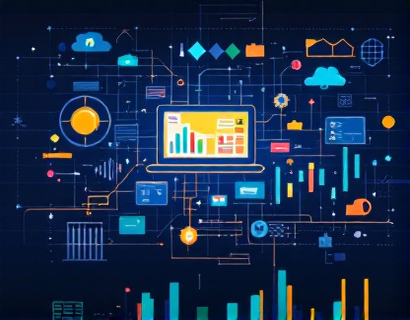AI Service Innovations: Transformative Solutions for Industry Leaders
The landscape of technology is rapidly evolving, with artificial intelligence (AI) emerging as a pivotal force driving innovation across various sectors. Industry leaders are increasingly recognizing the potential of AI to enhance productivity, streamline operations, and unlock new opportunities for growth. This article delves into the transformative AI services that are reshaping the way businesses operate, offering a comprehensive resource for tech enthusiasts, developers, business professionals, and innovators. The focus is on exploring the latest advancements in AI technology and how these solutions can be leveraged to achieve significant improvements in efficiency and effectiveness.
AI services are no longer confined to research labs or large corporations. With the democratization of AI tools and platforms, smaller businesses and startups can now access cutting-edge technologies that were once exclusive to tech giants. This shift has led to a surge in AI-driven innovations, with companies across different industries adopting AI to stay competitive. From healthcare to manufacturing, finance to retail, the applications of AI are vast and varied, each tailored to address specific challenges and capitalize on unique opportunities.
Enhancing Productivity with AI
One of the most significant impacts of AI services is the enhancement of productivity. Automation, a core component of AI, allows businesses to automate repetitive and time-consuming tasks, freeing up human resources to focus on more strategic and creative work. For instance, in manufacturing, AI-powered robots can perform assembly line tasks with precision and speed, reducing errors and increasing output. In the service industry, chatbots and virtual assistants powered by natural language processing (NLP) can handle customer inquiries around the clock, improving response times and customer satisfaction.
AI-driven analytics tools are another game-changer. These tools can process and analyze vast amounts of data in real-time, providing insights that were previously unattainable. Businesses can leverage these insights to make data-driven decisions, optimize processes, and identify new market opportunities. For example, in supply chain management, AI can predict demand patterns, optimize inventory levels, and reduce costs associated with overstocking or stockouts.
Driving Success through AI Innovations
Success in today's fast-paced business environment requires more than just efficiency; it demands innovation and adaptability. AI services offer a range of solutions that can help businesses stay ahead of the curve. Machine learning algorithms, a subset of AI, can learn from data and improve over time without being explicitly programmed. This capability is particularly useful in areas such as fraud detection, where patterns of suspicious activity can be identified and flagged in real-time, enhancing security and trust.
In the healthcare sector, AI is revolutionizing patient care and medical research. AI-powered diagnostic tools can analyze medical images with high accuracy, assisting doctors in early detection and treatment of diseases. Personalized medicine, driven by AI, tailors treatment plans to individual patients based on their genetic makeup and medical history, leading to more effective outcomes. Additionally, AI can streamline administrative tasks, reducing the burden on healthcare professionals and allowing them to focus more on patient care.
AI in Finance: A New Era of Financial Services
The finance industry is another area where AI is making a profound impact. AI-driven solutions are transforming traditional financial services, making them more efficient, secure, and customer-centric. Robotic process automation (RPA) is being used to automate routine tasks such as data entry, reconciliation, and report generation, reducing the risk of human error and freeing up staff for more complex tasks. AI-powered trading platforms can analyze market data and execute trades at optimal times, enhancing profitability and reducing risk.
Credit scoring is another area where AI is revolutionizing the industry. Traditional credit scoring models rely heavily on historical data and may overlook non-traditional sources of creditworthiness. AI algorithms can incorporate a broader range of data points, including social media activity, rental payment history, and mobile phone usage, to create more accurate and inclusive credit profiles. This approach not only improves access to credit for underserved populations but also helps financial institutions make more informed lending decisions.
Transforming the Retail Experience
Retail is yet another sector that has been significantly transformed by AI. AI-powered recommendation engines use customer data to suggest products that align with individual preferences, enhancing the shopping experience and driving sales. Personalization extends beyond product recommendations to include tailored marketing campaigns and customer service interactions. AI-driven chatbots and virtual assistants can provide instant support, answer queries, and guide customers through the purchasing process, improving customer satisfaction and loyalty.
In-store experiences are also being enhanced with AI. Smart shelves equipped with sensors and cameras can track inventory levels in real-time, alerting staff when items need to be restocked. AI-powered visual search allows customers to upload pictures of products they see in stores or online, quickly finding matching items and additional information. This not only simplifies the shopping process but also provides valuable insights for retailers to optimize their product offerings and store layouts.
AI in Healthcare: Beyond Diagnostics
Beyond diagnostics, AI is transforming various aspects of healthcare, from drug discovery to patient management. AI algorithms can analyze vast datasets to identify potential drug candidates, significantly reducing the time and cost associated with traditional drug development processes. Machine learning models can predict the efficacy and safety of new compounds, streamlining the research and development pipeline.
Telemedicine, powered by AI, is making healthcare more accessible, especially in remote or underserved areas. AI-driven platforms can conduct preliminary assessments, monitor patient conditions, and provide recommendations for treatment. This not only improves access to care but also helps in managing chronic conditions more effectively. AI can also assist in administrative tasks such as scheduling, billing, and documentation, reducing the workload on healthcare providers and improving overall efficiency.
AI in Manufacturing: Smart Factories of the Future
Manufacturing is witnessing a revolution with the adoption of AI technologies, leading to the creation of smart factories. AI-powered predictive maintenance can anticipate equipment failures before they occur, reducing downtime and maintenance costs. Machine learning models can optimize production schedules, resource allocation, and quality control processes, ensuring maximum efficiency and minimal waste.
Collaborative robots, or cobots, are another exciting development in manufacturing. These robots work alongside human workers, enhancing productivity and safety. Cobots can handle repetitive and physically demanding tasks, allowing human workers to focus on more complex and creative aspects of their jobs. This collaboration not only improves operational efficiency but also enhances the overall working environment.
AI in Agriculture: Precision Farming
Agriculture is another sector benefiting from AI innovations, particularly through precision farming. AI-driven systems can analyze data from sensors, drones, and satellites to monitor crop health, soil conditions, and weather patterns. This data is used to optimize irrigation, fertilization, and pest control, leading to higher yields and more sustainable farming practices. AI can also predict crop yields and market trends, helping farmers make informed decisions and maximize profits.
Autonomous farming equipment, guided by AI, can perform tasks such as planting, harvesting, and monitoring with high precision and efficiency. These technologies reduce the need for manual labor and minimize the environmental impact of farming. Additionally, AI can help in livestock management, monitoring animal health and behavior to ensure optimal conditions and early detection of diseases.
Challenges and Considerations
While the potential of AI services is immense, there are several challenges and considerations that need to be addressed. One of the primary concerns is data privacy and security. As AI systems rely heavily on data, ensuring the protection of sensitive information is crucial. Businesses must implement robust security measures and comply with data protection regulations to build trust and avoid potential legal issues.
Another challenge is the ethical use of AI. As AI becomes more integrated into various aspects of life, questions about bias, transparency, and accountability arise. It is essential for developers and organizations to adopt ethical AI practices, ensuring that AI systems are fair, unbiased, and transparent. This includes regular audits and the implementation of ethical guidelines in AI development.
Additionally, the rapid pace of AI innovation can lead to a skills gap, with a growing demand for professionals skilled in AI and related technologies. Education and training programs need to evolve to equip the workforce with the necessary skills to thrive in an AI-driven economy. Collaboration between educational institutions, industry, and government is crucial to address this challenge.
Conclusion
The innovations in AI services are transforming industries and redefining the way businesses operate. From enhancing productivity and driving success to revolutionizing sectors such as healthcare, finance, retail, manufacturing, and agriculture, AI is opening up new possibilities and opportunities. As the technology continues to evolve, it is essential for industry leaders to stay informed and adapt to these changes. By embracing AI services, businesses can stay competitive, innovative, and poised for future success.










































